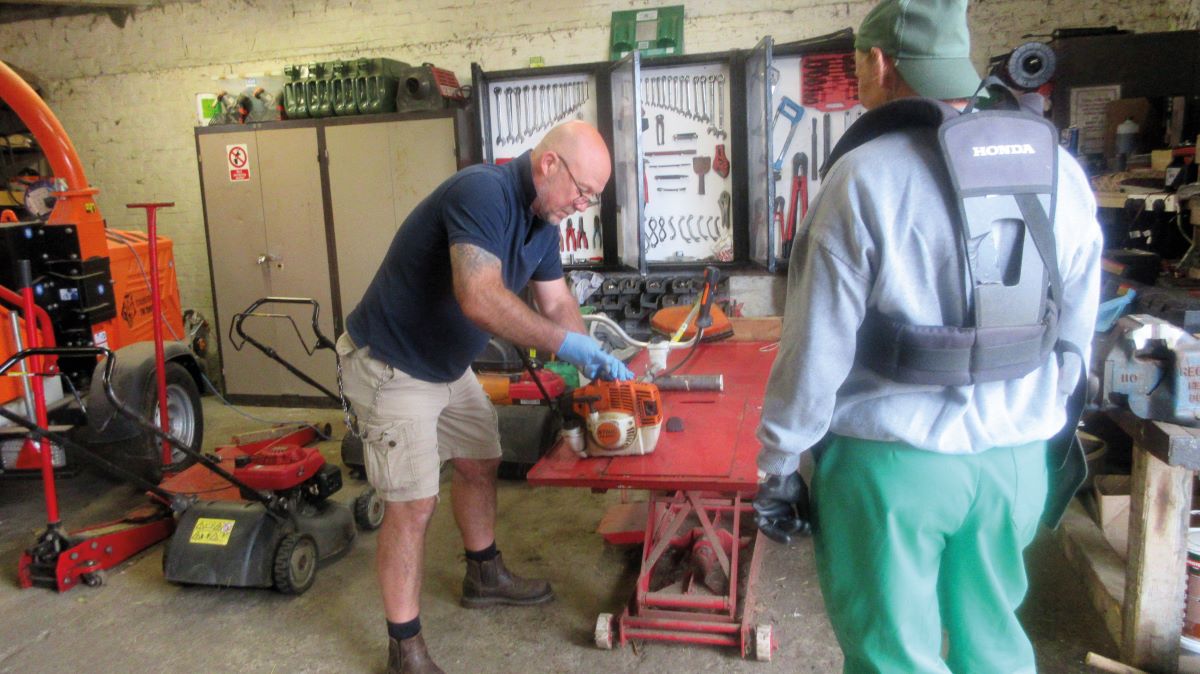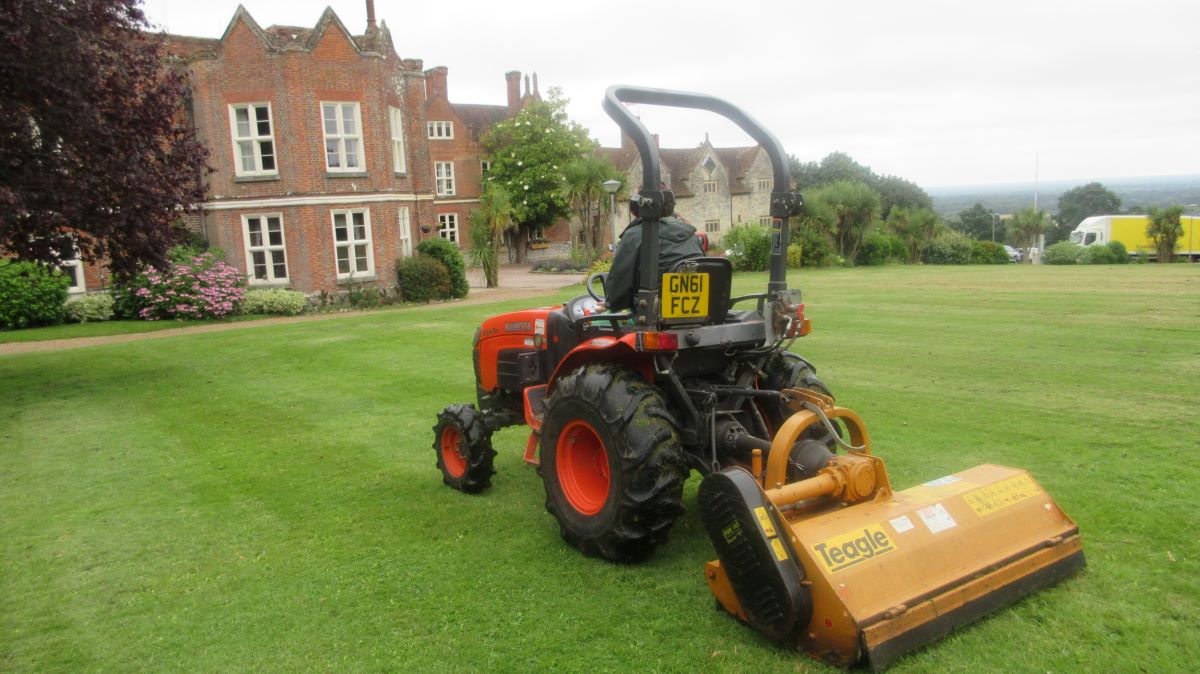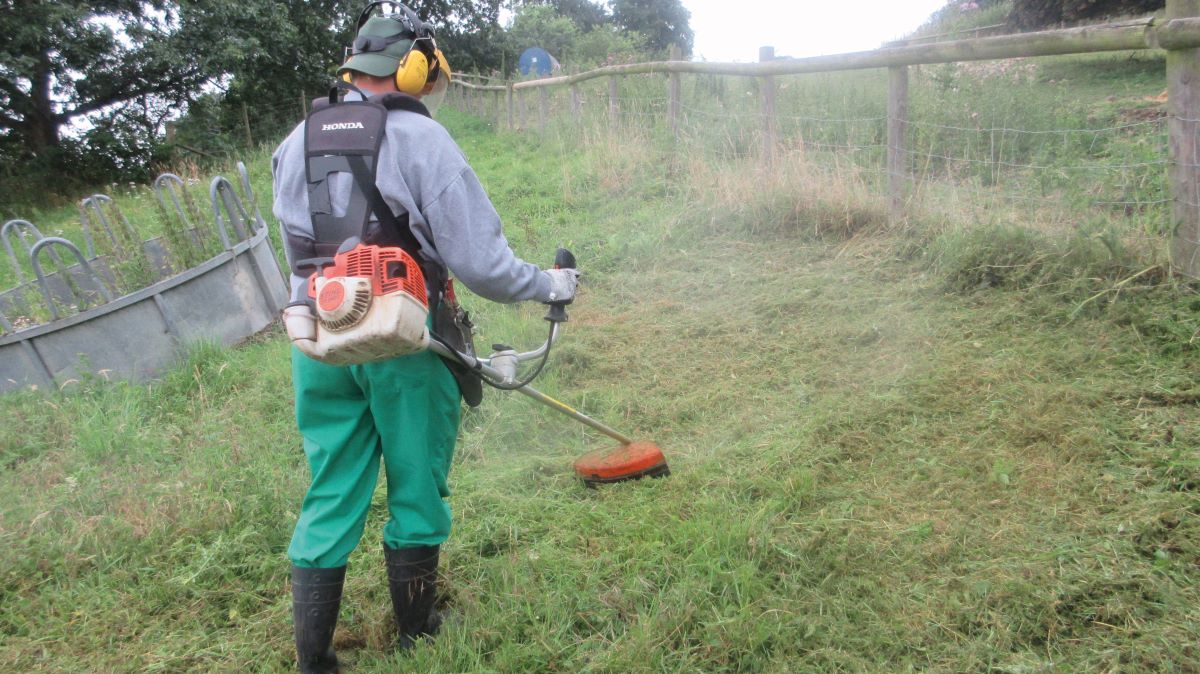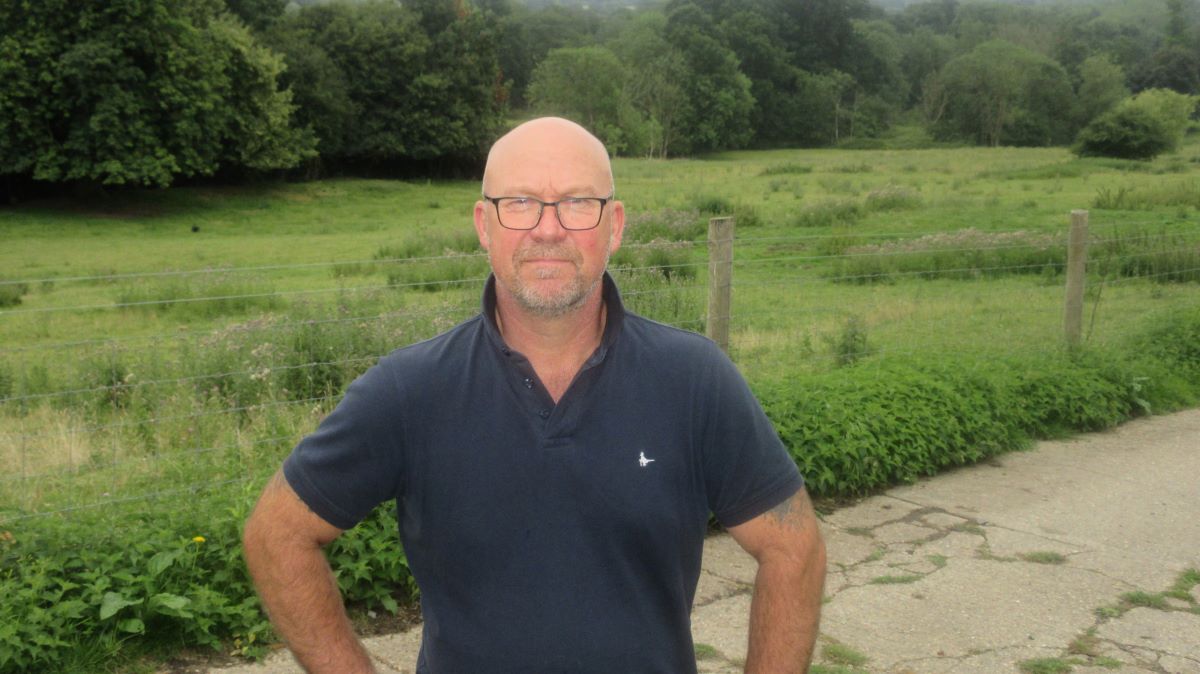- Homepage
- News and Features
- Greenkeeping Opportunities for Reformed Offenders
Greenkeeping Opportunities for Reformed Offenders
Recruitment and staff retention is a common issue for golf clubs - could offering opportunities to reformed offenders help to address this problem? One former Hadlow College instructor thinks so.

Chris Boakes provides a demonstration for a prisoner at HMP East Sutton Park
Chris Boakes is the Land-Based Activities (LBA) Manager at HMP East Sutton Park, a female prison in Kent with 100 prisoners.
The facility runs a programme to help prisoners gain qualifications and find employment opportunities, with greenkeeping among the possible career avenues for the women.
Boakes hopes to see more people from East Sutton Park get the chance to try their hand at a job he loves, and he is calling on the golf industry to lend a hand.
Can you describe your current role?
I am the LBA Manager at HMP East Sutton Park, which is a female open prison with an 80-acre estate in the heart of Kent. We are not specific to sports turf, but that’s where I originally started as an apprentice almost 40 years ago.
We supervise the prisoners in a mixture of activities in horticulture, agriculture and butchery, like any outside college specialising within the industry. If they wish, the prisoners can participate in horticultural or agricultural City & Guilds NVQ Levels 1 to 3 and NPTC machinery skills tests.
We currently deliver NPTC brush-cutter and trimmers, tractor, blowers, hedge cutters, pedestrian, ride-on and tractor-mounted mower. We utilise the skills gained to help in resettlement work if this is a career they wish to pursue while still in our care and upon release. With some supportive business partners both past and present, we have helped prisoners find employment in all areas of horticulture, and this has included greenkeeping last year.

Which golf clubs do you work with and are there others who may get involved in the future?
We have The Ridge Golf Club right next door to us, and we put two ladies there for paid employment last year. We plan to get back in there but it’s about having the right people at the right time, as obviously they must make sure they’re covered for casual labour.
I played Chart Hills recently and spoke to the general manager there, Anthony Tarchetti, about our wish to explore the possibility of sending people there. I plan to invite him to come and have a look around HMP East Sutton Park.
We’ve had a few working at Leeds Castle, just down the road from us, in the past but that’s been more within the estate and not specifically on the golf course.
We have got plenty of golf courses around us here who we’d like to try and get involved with a bit more.
How common is this kind of initiative?
It’s very rare. The prison service is facing some difficulties, and it’s changed a lot from when I first started 32 years ago. Back then, land-based services were massive in terms of training prisoners, rehabilitating them and getting them back into work. Likewise, prior to 2004, the prison service was almost self-sustainable in its production for kitchens, but now much has been devolved, with only five prison farms left in the country.
Recruitment of vocational instructors nationally is a huge problem for us, and this is holding back training to help prisoners into the land-based sector where jobs are available.
Do you find there is any reluctance from employers to take prisoners on?
It can be an awkward one. We are a resettlement prison, and we work with several large employers – Sainsbury’s, Greggs, Timpson – that support other avenues of work.
You do meet with some resistance at times, but we explain to employers that you know everything about these people as they must disclose their history. In most cases you find there is some abuse or trauma that has led to them being in this position, and they’re looking to do something positive to turn their life around.
We get loads of women who write to us and let us know they’re doing well, and they thank us for helping to change their lives, which is the really rewarding bit.

What do you tell the women about what greenkeeping can offer as a career?
We do find that many of them don’t really know what it involves, and the two who went over to The Ridge last year were really surprised by it – it’s definitely more than just cutting grass!
I always tell them that greenkeeping - and any work in horticulture - is a labour of love. You’re probably not going to get rich doing it – although some don’t do too badly – but it’s a great career. You get to work outside, you meet people so there’s social interaction and the big one, which is close to my heart, is that you’re working with nature.
It has its challenges but they’re all part of it – the weather can vary, you’ve got pests and diseases to deal with - it’s all what makes the job varied and enjoyable.
What is your message to those reading this who are in a position to engage with an initiative like the one at East Sutton Park?
I’d encourage golf clubs to speak to the prisons as every prison now has an employment liaison person. I’ve done the bulk of it down the years, but we’ve got someone in that role now at East Sutton Park who is speaking to employers.
I’m a little bit sad that, having worked at Hadlow College for many years and having been involved with work-based learning, I’ve lost contact with many of the greenkeeping instructors and head greenkeepers. I used to do site visits and meet a lot of people in the industry around Kent and the South East, so I would like to touch base a little bit more with those people again, and I can have these conversations with them in person. GI

Boakes on his career in horticulture
I started out as a groundsman with a local park department and joined the prison service 32 years ago as an instructor on the grounds maintenance and sports turf facilities.
I commenced as an NVQ Assessor and IQA in 1994 and returned to college myself twice to study ecology and conservation, followed by agriculture. That’s how I ended up in education covering multiple disciplines.
During my time working for the prison service, I have been engaged in secondary employment for other colleges and training centres both in NVQ and NPTC assessment. It was while working for Hadlow College many years ago I first became a member of BIGGA due to a high percentage of the work-based learning students being golf or sports ground employed.
Author

